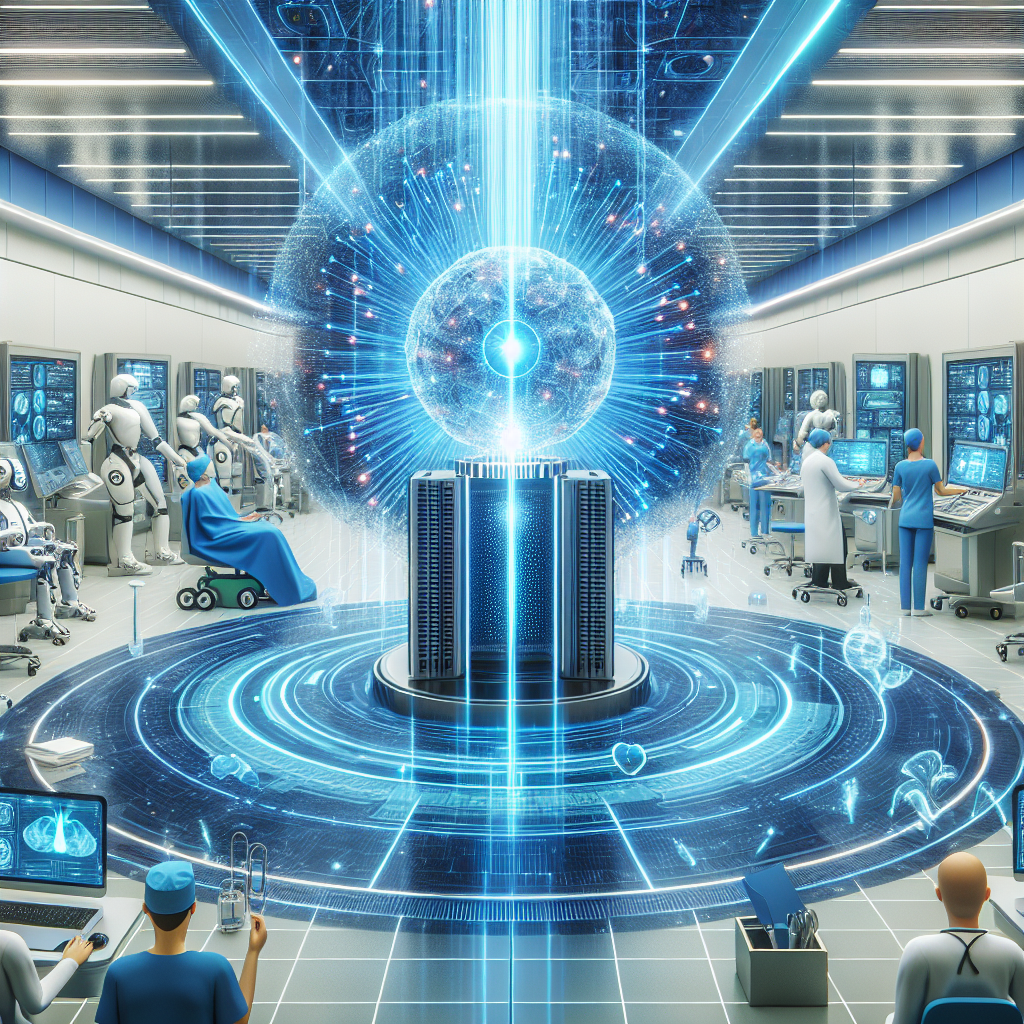Unleashing the Power of AGI: How Artificial General Intelligence is Transforming Healthcare
In recent years, the field of artificial intelligence (AI) has made significant advancements, with many applications being developed to improve various industries. One area that has seen a major transformation is healthcare, where AI technologies are being used to enhance patient care, optimize medical procedures, and revolutionize the way healthcare providers operate. One of the most exciting developments in AI is the emergence of Artificial General Intelligence (AGI), which has the potential to revolutionize healthcare in ways never seen before.
What is Artificial General Intelligence?
Artificial General Intelligence (AGI) refers to AI systems that are capable of performing any intellectual task that a human can do. Unlike specialized AI, which is designed for specific tasks like image recognition or natural language processing, AGI aims to replicate human intelligence across a wide range of domains. AGI systems can learn from experience, adapt to new situations, and solve complex problems without human intervention.
AGI has the potential to revolutionize industries such as healthcare by making predictions, generating insights, and automating tasks that were once thought to be exclusive to human intelligence. By harnessing the power of AGI, healthcare providers can improve patient outcomes, reduce costs, and enhance the overall quality of care.
Transforming Healthcare with AGI
The use of AGI in healthcare is already making an impact in various areas, from diagnostic imaging to personalized medicine. Here are some of the ways AGI is transforming healthcare:
1. Medical Imaging: AGI-powered algorithms can analyze medical images such as X-rays, MRIs, and CT scans with high accuracy, helping radiologists detect abnormalities and make faster, more accurate diagnoses. This can lead to earlier detection of diseases such as cancer, resulting in better patient outcomes.
2. Drug Discovery: AGI can analyze vast amounts of data to identify potential drug candidates, predict their effectiveness, and optimize dosages. This can accelerate the drug discovery process, reduce costs, and improve the development of new treatments for various diseases.
3. Personalized Medicine: AGI can analyze a patient’s genetic information, medical history, and lifestyle factors to create personalized treatment plans. This can improve the effectiveness of treatments, reduce adverse reactions, and tailor healthcare interventions to individual patients.
4. Remote Monitoring: AGI-powered devices can monitor patients’ vital signs, detect abnormalities, and alert healthcare providers in real-time. This can enable early intervention, prevent medical emergencies, and improve patient outcomes, especially for those with chronic conditions.
5. Healthcare Administration: AGI can automate administrative tasks such as scheduling appointments, billing, and coding, freeing up healthcare providers to focus on patient care. This can streamline operations, reduce errors, and improve the efficiency of healthcare organizations.
FAQs
1. How is AGI different from other forms of AI?
AGI is distinguished from specialized AI by its ability to perform a wide range of intellectual tasks, adapt to new situations, and learn from experience. While specialized AI is designed for specific tasks, AGI aims to replicate human intelligence across various domains.
2. How can healthcare providers benefit from AGI?
Healthcare providers can benefit from AGI by improving patient outcomes, reducing costs, and enhancing the overall quality of care. AGI can help providers make faster, more accurate diagnoses, optimize treatment plans, and automate administrative tasks, allowing them to focus on delivering personalized care to patients.
3. Is AGI safe to use in healthcare?
AGI technologies are designed to adhere to strict regulations and ethical guidelines to ensure patient safety and privacy. Healthcare providers should implement robust security measures, data encryption, and compliance protocols to safeguard patient information and ensure the responsible use of AGI in healthcare.
4. What are the challenges of implementing AGI in healthcare?
One of the main challenges of implementing AGI in healthcare is the need for extensive data sets, high computing power, and advanced algorithms to train AI models effectively. Healthcare providers must also address ethical concerns, regulatory requirements, and interoperability issues to ensure the successful integration of AGI into their workflows.
5. What is the future of AGI in healthcare?
The future of AGI in healthcare is promising, with the potential to revolutionize the industry by improving patient outcomes, reducing costs, and enhancing the overall quality of care. As AGI technologies continue to evolve, healthcare providers can leverage their capabilities to transform the way healthcare is delivered, making it more personalized, efficient, and effective.
In conclusion, AGI is poised to revolutionize healthcare by harnessing the power of artificial intelligence to improve patient outcomes, optimize medical procedures, and transform the way healthcare providers operate. By embracing AGI technologies, healthcare organizations can unlock new opportunities for innovation, collaboration, and continuous improvement, leading to a brighter future for the healthcare industry and the patients it serves.

